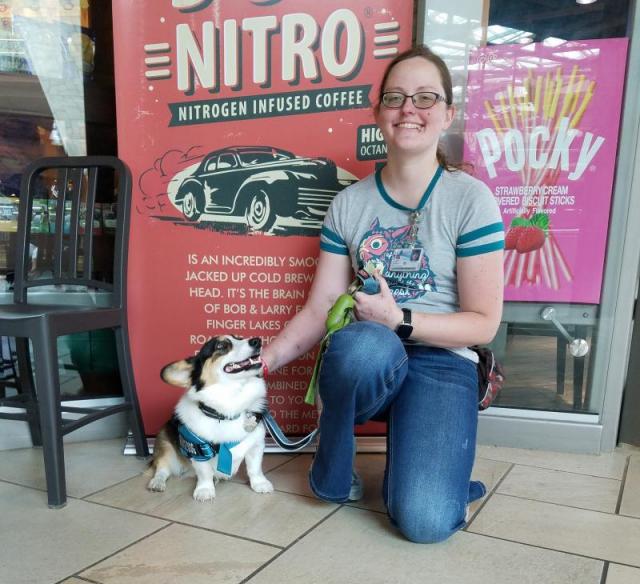CHITTENANGO, N.Y. – “Veterans benefit significantly from dog ownership in combination with a structured dog training program.”
That is the finding of a scientific study recently published in The Journal of Alternative and Complementary Medicine: Paradigm, Practice, and Policy Advancing Integrative Health.
According to the study’s lead researcher, Dr. Dessa Bergen-Cico at Syracuse University’s Department of Public Health, “this is one of the first such studies to be published on the impact dogs have on veterans’ post-traumatic stress symptoms that includes the scientific rigor of a control group and longitudinal follow-up.” For the study, 48 veterans were either enrolled in Clear Path for Veterans’ owner-trainer Dogs2Vets Program or were placed in the wait list control group. The study, which began in 2014, tracked Dogs2Vets’ 12-month structured program that engaged veterans in the training and care of a dog that they ultimately adopted.
During the study, participating veterans were measured for post-traumatic stress symptoms, perceived stress, self-compassion, isolation and self-judgment.
“The results of this study serve to bolster what we have observed since the founding of our Dogs2Vets Program nearly eight years ago. That across the board, veterans who participate in our Dogs2Vets Program experience significant reductions in symptoms of post-traumatic stress, perceived stress, isolation and self-judgment,” said Dogs2Vets Program manager Ryan Woodruff. “In the control group – those placed on the wait list – we saw no significant improvements in these same measures.”
According to an analysis of U.S. veterans returning from Iraq and Afghanistan, there are many individual and systematic barriers to engaging military veterans in traditional clinical treatment for post-traumatic stress disorder, and as a result fewer than half of veterans in need of PTSD treatment will actually receive clinical services through the Veterans Administration. Because of this, effective complementary and alternative strategies outside of traditional clinical structures are needed for veterans with PTSD, such as animal-assisted interventions.
Why would Clear Path’s Dogs2Vets Program stand above other animal-assisted interventions?
“Researchers note that the compassionate and nonjudgmental demeanor of dogs uniquely support veterans with PTSD. Veterans who often experience hypervigilance, isolation and reintegration challenges will find dogs a better complement to combating PTSD than other animal types,” Woodruff said.
“I found it very reassuring that the veterans’ responses at the conclusion of the study prove our canine programming has impact. This study mirrors what we have heard since we opened the program in January 2011. Responses such as: ‘My dog has made me more comfortable in public places and around people I don’t know.’ ‘My dog has helped decrease my isolation by fostering my socialization and reducing my PTSD symptoms.’ and ‘I’m a better spouse, parent and person overall.’ We hear this anecdotal evidence on a weekly basis and although owner-trainer canine models are more time-consuming and intensive, the long-term benefits far outweigh an easier, shorter approach,” said Clear Path’s co-founder and CEO Melissa Spicer.
The article was co-authored by Dessa Bergen-Cico, PhD, and Brooks Gump, PhD, in the Department of Public Health at Syracuse University; Yvonne Smith, PhD, and Collin Gooley, MSW, in the School of Social Work at Syracuse University; and Karen Wolford, PhD, in the Department of Psychology at SUNY Oswego; along with Clear Path for Veterans’ staff members Kathleen Hannon, Spicer and Woodruff.
This study was supported, in part, through funding from the National Science Foundation’s Research Education for Undergraduates and is one of the few studies of its kind.
The Journal of Alternative and Complementary Medicine is the leading peer-reviewed journal providing scientific research for the evaluation and integration of complementary and alternative medicine into mainstream medical practice. The complete article can be found at www.liebertpub.com/doi/10.1089/acm.2018.0179.
For more information about Clear Path for Veterans’ Dogs2Vets Program, visit www.ClearPath4Vets.com/Programs/Canine-Program.

Study finds veterans benefit ‘significantly’ from canines
Chittenango , NY
November 26, 2018
Submitted by:
Christian L. Vischi



